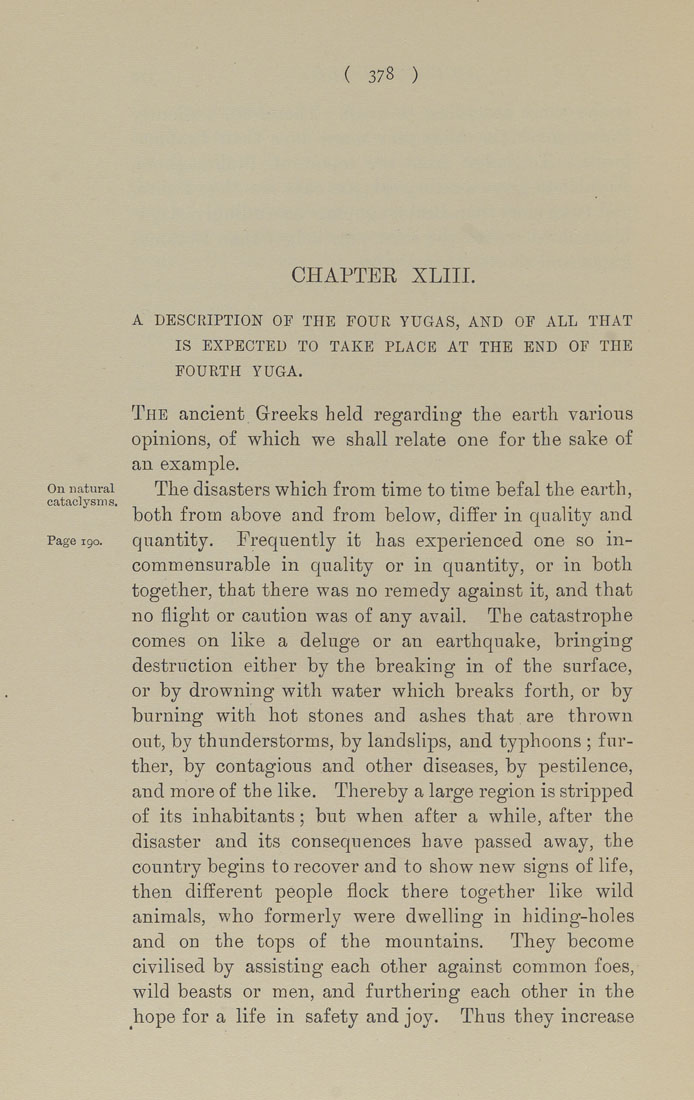Bīrūnī, Muḥammad ibn Aḥmad, Alberuni's India (v. 1)
(London : Kegan Paul, Trench, Trübner & Co., 1910.)
|
||
|
|
|
|
| Page 378 |

( 378 ) CHAPTEE XLIII, A DESCEIPTION OF THE FOUE YUGAS, AND OF ALL THAT IS EXPECTED TO TAKE PLACE AT THE END OF THE FOUETH YUGA, The ancient Greeks held regarding the earth various opinions, of which we shall relate one for the sake of an example. On natural The disastors which from time to time befal the earth, cataclysms. both from above and from below, differ in quality and Page 190. quantity. Frequently it has experienced one so in¬ commensurable in quality or in quantity, or in both together, that there was no remedy against it, and that no flight or caution was of any avail. The catastrophe comes on like a deluge or an earthquake, bringing destruction either by the breaking in of the surface, or by drowning with water which breaks forth, or by burning with hot stones and ashes that are thrown out, by thunderstorms, by landslips, and typhoons ; fur¬ ther, by contagious and other diseases, by pestilence, and more of the like. Thereby a large region is stripped of its inhabitants; but when after a while, after the disaster and its consequences have passed away, the country begins to recover and to show new signs of life, then different people flock there together like wild animals, who formerly were dwelling in hiding-holes and on the tops of the mountains. They become civilised by assisting each other against common foes, wild beasts or men, and furthering each other in the hope for a life in safety and joy. Thus they increase |
| Page 378 |







